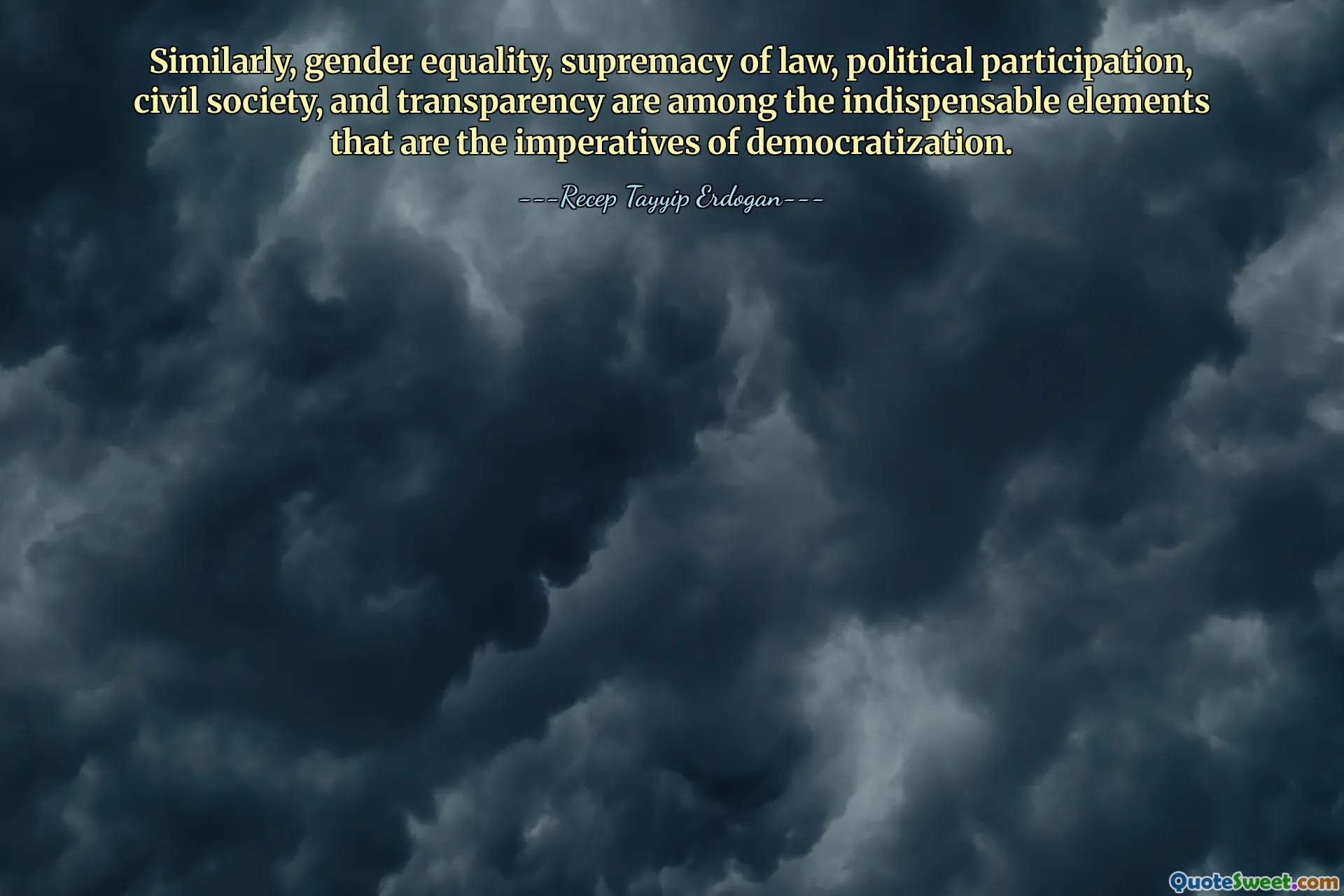
Similarly, gender equality, supremacy of law, political participation, civil society, and transparency are among the indispensable elements that are the imperatives of democratization.
The quote underscores the multifaceted nature of democratization, emphasizing that it is not a monolithic process but rather a nuanced interplay of several fundamental elements. Gender equality acts as a catalyst for inclusive governance, ensuring diverse voices contribute to decision-making processes and societal development. The rule of law secures justice and fairness, establishing a stable foundation where rights are protected and arbitrary actions are curtailed. Political participation is vital because it embodies the essence of democracy, empowering citizens to influence policies and leadership. Civil society serves as a bridge between the state and the populace, fostering social cohesion and holding power to account. Transparency is the backbone of trust, ensuring government actions and decisions are open and accessible to the public, preventing corruption, and promoting accountability. Collectively, these elements ignite the socio-political momentum necessary for meaningful democratization, creating a more just, equitable, and participatory environment. Recognizing that each of these components is indispensable reflects an understanding that democracy is a dynamic system requiring continuous nurturing and vigilance. Countries aspiring to democratization must develop policies and institutions that reinforce these principles, ensuring they become deeply embedded in the social fabric. When these elements operate synergistically, they lay the groundwork for resilient democracies capable of adapting to changing circumstances and emerging challenges, ultimately enhancing the quality of life and social harmony within nations.











